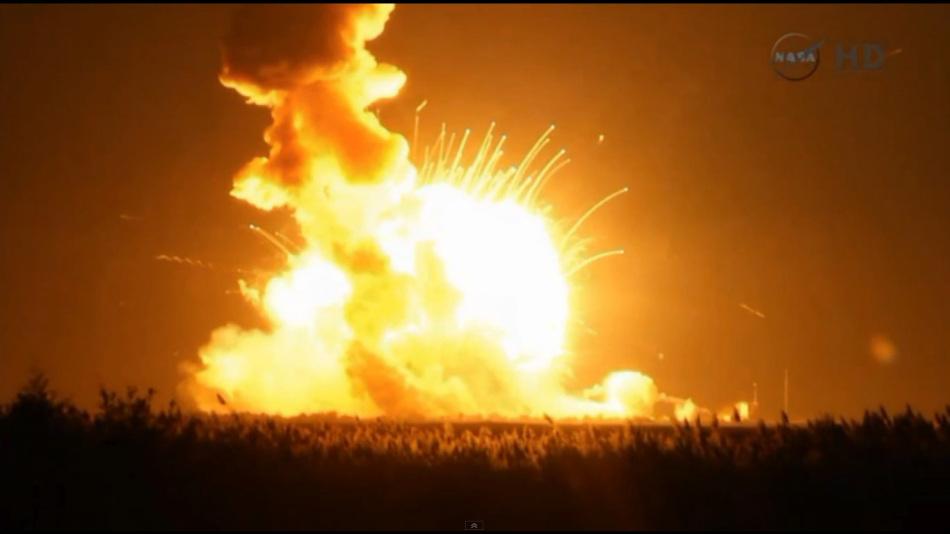NASA fails to launch its Antares rocket
Photo courtesy of Wiki Commons
The Antares rocket carrying Cygnus Orb-3 explodes upon impacting the ground, shortly after suffering a catastrophic failure after launch.
The Antares rocket exploded approximately 15 seconds after liftoff in Virginia on Oct. 28; possible engine failure caused the explosion, according to the New York Times.
The Antares rocket was an unmanned rocket and built to go to the International Space Station (ISS) for NASA to deliver supplies. According to the New York Daily News, the rocket blew up, confirming signs that indicated the rocket was malfunctioning. As of now, most believe the issue lies in the rocket’s engine, more specifically the turbopump, according to the New York Times.
Orbital Sciences provided the engine used in the Antares rocket. Orbital Sciences is a private company that holds a contract with NASA worth approximately $1.9 million dollars. This engine was intended to be used for a Russian moon program, but due to multiple in-flight failures, it was not used. The engine was then sold to Orbital Sciences and refurbished to be used in the Antares rocket, according to the New York Times.
“I think it was saddening to see the science of it dissolve, and I feel like it’s going to hinder future attempts,” science teacher Crystal Cooper said.
This accident resulted in the loss of much money; not only that but cautious attitudes may obstruct the way of future advances. This may be because the risk in these activities is known very well; from this accident an estimated $266 million in equipment and supplies were lost, according to the Washington Post.
“I think it was a little bit sad, and [the rocket] was supposed to go to the space station and deliver food and supplies to the space station,” science teacher Cliff Nelson said.
No one was injured in this incident; however, debris from the rocket fell into the south end of Wallops Island. Residents of this area have been warned not to touch this debris, because it may be contaminated with rocket fuel and other hazardous materials, as advised by NASA officials.
“I don’t think this will disrupt the community should the mess be cleaned promptly,” junior Adithi Iyer said.
Although this was a negative experience, not all have a negative opinion about what will come in the future in advances in astronomy.
“They learn from every mistake…that’s how science works, that’s how technology works and that’s how rocket science works,” science teacher Mike Antrim said.
Your donation will support the student journalists of Woodbridge High School. Your contribution will allow us to purchase equipment and cover our annual website hosting costs.






